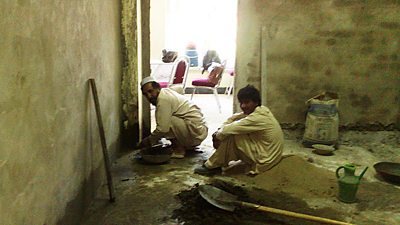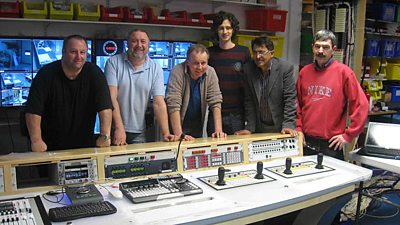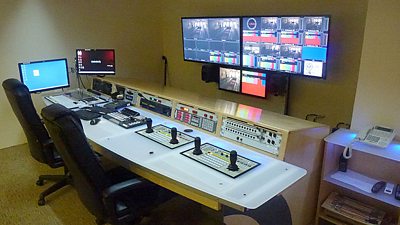Journalists can access, record, edit and share video of the lower house's activities.
In 2012, a state-of-the-art media centre opened at the Afghan parliament which allowed journalists immediate and full access to report on the activities of the lower house, the Wolesi Jirga. The media pool will help bring Afghan MPs closer to the citizens they serve.
The Afghanistan Parliament Media Pool replaced what was a basic, non-broadcast quality audio and CCTV system in the Afghanistan parliament building in Kabul. Cameramen previously had to be physically present in the middle of the semi-circular parliament hall, which constituted a security risk and interrupted proceedings. The film crews could also choose which debates to film.
Automated filming
Now nine High-Definition (HD) robotic cameras operate in the lower house's chamber and its conference room, set up to automatically record speakers and also give a range and choice of shots. A production gallery can further control the cameras if needed and the output is saved digitally on a server that can hold a month's footage before it is archived digitally.
In an updated media centre, journalists can access, record, edit and share video of the activities of the lower house and its conference room sessions. Satellite trucks and outside broadcast vehicles can also take a live feed of the Wolesi Jirga’s activities.

From Leeds to Kabul
To ensure the project was up and running as quickly as possible, in 2011 ����ý Media Action commissioned the entire system in the UK, even down to the media desks the journalists use, before it was delivered to Kabul. The complete system was built, configured and tested in a workshop in Leeds, northern England, before being de-rigged, packed and sent to Afghanistan to be reassembled.
The pre-fabrication allowed an extra stage of crucial training for the Kabul team. Two 'super-users' from Kabul, Abdul Razaq and Ghayour Rahmani, travelled to the UK to be trained on the new equipment and also visited the ����ý Parliament team which has, since the 1990s, endeavoured to make proceedings in the UK parliament interesting and engaging.
They learned such skills as giving viewers a taste of the geography of the parliament and getting reaction shots when MPs speak – fundamental tenets of camerawork in other television genres but rarely applied when broadcasting legislative speeches. ����ý Media Action also worked with the Kabul team to develop rules of coverage. 'Super-user' Abdul Razaq said, "It was a golden opportunity to learn about professional media pool equipment."
The project was commissioned by ����ý Media Action with funding from the Federal Assistance Award - US State Department.

Project information
| Project name | Establishment of a Media Pool at the Afghan Parliament |
| Funder | |
| Dates | 2011-2012 |
| Themes | Governance |
